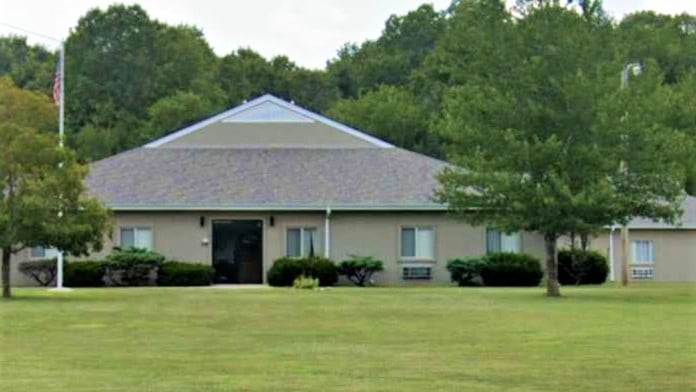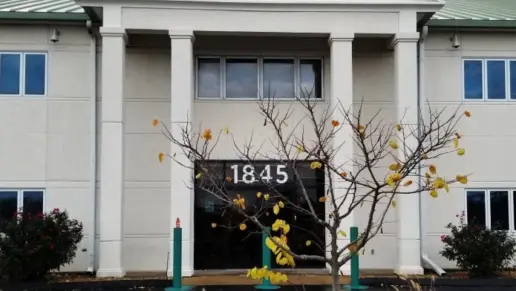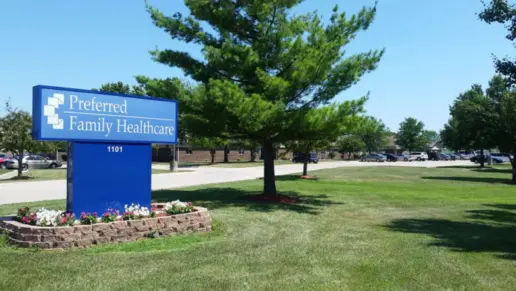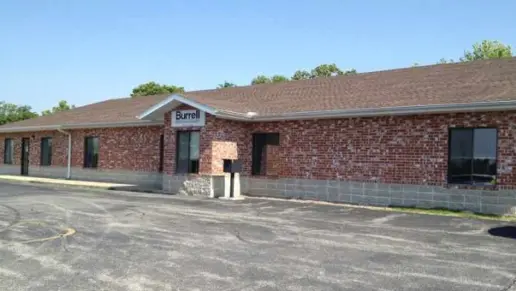I've not personally used your resources but know of several close friends and family members who have. Majority of them have kept to the guidelines and resources they learned from their time spent with your faculty. I've seen their lives do a 360 in just short period and tru ...
About FCC Behavioral Health – Turning Leaf Center
FCC Behavioral Health is a nonprofit substance use and co occurring mental health disorder treatment organization. They have locations throughout Missouri that offer different levels of care. The location on Lanton Road in West Plains provides residential and outpatient treatment services for adults. They accept private insurance, Medicaid, Medicare, and TRICARE. To remove obstacles to treatment, they won’t turn anyone away due to an inability to pay. If you’re uninsured or underinsured, you can pay on a sliding scale payment schedule.
Integrated Treatment Services in West Plains, MO
Many people with substance use disorder (SUD) have co occurring mental health challenges. At Turning Leaf Center, they offer a special integrated treatment track for clients with SUD and mental health issues. The track offers continuity of care by ensuring clients receive SUD and mental health care from the same treatment team.
There are two intensive residential treatment service programs. The programs serve adults who are an ongoing risk to themselves or others and/or have struggled in many different community settings. They may also be in danger of long term psychiatric hospitalization.
There’s also a Level 1 residential treatment program that includes around the clock supervision with clinical services seven days a week. The program includes social detoxification and 60 hours of therapeutic activities each week.
The Turning Leaf location has an Intensive Outpatient Program (IOP), level 1 day treatment, and outpatient supported recovery services. All programs offer intake screening, assessments, individual and group counseling, and case management services.
Veterans Outreach Services in West Plains
The Veterans Outreach Program treats active military and Veterans. The goal is to help clients achieve improved mental and behavioral health and overall wellness. Staff provides assistance with referrals, access to benefits, and engagement of services. Clients participate in group, individual, and family therapy. They receive medication management, case management, and crisis intervention.
Helping the Homeless in Missouri
The organization assists the homeless experiencing SUD and mental health challenges. They provide affordable, safe, permanent housing in conjunction with supportive treatment services. They assist low income adults with disabilities through subsidized housing and supportive services.
Rehab Score
Gallery

Location
Other Forms of Payment
Private insurance refers to any kind of healthcare coverage that isn't from the state or federal government. This includes individual and family plans offered by an employer or purchased from the Insurance Marketplace. Every plan will have different requirements and out of pocket costs so be sure to get the full details before you start treatment.
Self-pay involves paying for treatment out of your own pocket. You can use savings or credit, get a personal loan, or receive help from family and friends to fund your treatment. If you don't have insurance or your insurance plan doesn't cover a specific program, self-pay can help ensure you still get the care you need.
Financial aid can take many forms. Centers may have grants or scholarships available to clients who meet eligibility requirements. Programs that receive SAMHSA grants may have financial aid available for those who need treatment as well. Grants and scholarships can help you pai for treatment without having to repay.
Sliding scale payments are based on a client's income and family size. The goal is to make treatment affordable to everyone. By taking these factors into account, addiction recovery care providers help ensure that your treatment does not become a financial burden to you or your family, eliminating one barrier to care.
Medicare is a federal program that provides health insurance for those 65 and older. It also serves people under 65 with chronic and disabling health challenges. To use Medicare for addiction treatment you need to find a program that accepts Medicare and is in network with your plan. Out of pocket costs and preauthorization requirements vary, so always check with your provider.
Medicaid is a state based program that helps lower-income individuals and families pay for healthcare. Medicaid covers addiction treatment so those enrolled can use their coverage to pay for rehab. When a program accepts Medicaid the client often pays very little or nothing out of their own pocket.
Military members, veterans, and eligible dependents have access to specific insurance programs that help them get the care they need. TRICARE and VA insurance can help you access low cost or no cost addiction and mental health treatment. Programs that accept military insurance often have targeted treatment focused on the unique challenges military members, veterans, and their families face.
Addiction Treatments
Levels of Care
Treatments
The goal of treatment for alcoholism is abstinence. Those with poor social support, poor motivation, or psychiatric disorders tend to relapse within a few years of treatment. For these people, success is measured by longer periods of abstinence, reduced use of alcohol, better health, and improved social functioning. Recovery and Maintenance are usually based on 12 step programs and AA meetings.
Drug rehab in Missouri usually involves several phases: detox, rehab, and aftercare. The rehab phase may include a combination of inpatient and outpatient treatments, as the individual moves through a continuum of care on their recovery journey.
Co-Occurring Counseling is a service that provides counseling to those identified as having both a substance use diagnosis and a mental health diagnosis. Co-occurring issues are integrated into the recovery care plan and are provided by qualified personnel. Co-occurring specific groups are also provided. If it is determined that a person(s)-served needs a psychiatric evaluation, this service can be coordinated through the agency telemedicine program. The program is equipped with telemedicine equipment that will allow us to access agency psychiatrists as needed for routine and/or crisis psychiatry services.
Substance rehabs focus on helping individuals recover from substance abuse, including alcohol and drug addiction (both illegal and prescription drugs). They often include the opportunity to engage in both individual as well as group therapy.
Programs



Clinical Services
Cognitive Behavioral Therapy (CBT) is a therapy modality that focuses on the relationship between one's thoughts, feelings, and behaviors. It is used to establish and allow for healthy responses to thoughts and feelings (instead of unhealthy responses, like using drugs or alcohol). CBT has been proven effective for recovering addicts of all kinds, and is used to strengthen a patient's own self-awareness and ability to self-regulate. CBT allows individuals to monitor their own emotional state, become more adept at communicating with others, and manage stress without needing to engage in substance abuse.
A complete course of dialectical behavior therapy typically takes six months. Skills training happens in a group setting. You'll also attend weekly individual treatment sessions to receive coaching from a therapist. You'll work on understanding and accepting your feelings and learn how to manage them to make positive changes.
Group Counseling is face-to-face, goal oriented therapeutic interaction among a counselor and two (2) or more adolescent’s as specified in individual recovery care plans designed to promote the adolescent’s functioning and recovery through personal disclosure and interpersonal interaction among group members. The usual and customary size of group counseling sessions is eight (8) adolescent’s and shall not exceed twelve (12) adolescent’s in order to promote full participation, disclosure and feedback. Specialized group counseling topics include, but are not limited to: Moral Reconation Therapy, Anger Management, Relapse Prevention, gender specific groups, trauma groups and co-occurring specific groups.
Individual Counseling is a structured, goal-oriented therapeutic process in which the person(s)-served interacts on a face-to-face basis with a counselor in accordance with the individual’s rehabilitation plan in order to resolve problems related to substance use which interferes with the person(s)-served functioning. Various treatment modalities are provided by appropriately trained staff to include, but are not limited to: Motivational Interviewing, Cognitive Behavioral Therapy, Integrated Dual Disorders Treatment and Relapse Prevention Therapy.
Motivational Interviewing (MI) is a clinical approach to helping people with substance abuse issues and other conditions shift behavior in positive ways. It is more goal-oriented than traditional psychotherapy, as MI counselors directly attempt to get clients to consider making behavioral change (rather than wait for them to come to conclusions themselves). Its primary purpose is to resolve ambivalence and help clients become able to make healthy choices freely.
Trauma therapy addresses traumatic incidents from a client's past that are likely affecting their present-day experience. Trauma is often one of the primary triggers and potential causes of addiction, and can stem from child sexual abuse, domestic violence, having a parent with a mental illness, losing one or both parents at a young age, teenage or adult sexual assault, or any number of other factors. The purpose of trauma therapy is to allow a patient to process trauma and move through and past it, with the help of trained and compassionate mental health professionals.
Couples therapy in Missouri deals with the problems each partner has within themselves and with each other. Sessions may be held jointly and others individually to address these issues and help each partner learn how to manage challenges in healthy ways.
Family Therapy is strongly encouraged and is scheduled on a case-by-case basis in order to promote access to services. The Family Therapist works directly with the family to schedule appointments. Family Therapy is a planned, face-to-face, goal oriented therapeutic interaction with a qualified staff member in accordance with an individualized recovery care plan. The Family Therapist works with each family to identify family strengths, needs and preferences. The purpose of family therapy is to address and resolve problems in family interaction related to the substance use problem and recovery.
Life skills trainings involve all the skills a person must have in order to function successfully in the world. These include time management, career guidance, money management, and effective communication. Truly successful addiction recovery is based on the ability to not only live substance-free, but to thrive. Life skills teaches the practical necessities of functioning in society, which sets clients up for success in life, and therefore sobriety.
Recreational therapy helps you overcome addiction by engaging in activities that promote physical fitness and mental health. These activities can include team sports, art, and outdoor adventures, Each of which helps reduce your stress level, improves mood, and develops new hobbies. These are crucial to support your long term journey to sobriety.
Nicotine replacement therapy in Missouri addresses physical dependence on nicotine, while support systems and behavioral therapy address the psychological aspects of addiction. Formats include inhalers, nasal sprays, lozenges, patches, and gum.
Amenities
-
Private Transportation
-
Residential Setting
-
Private Rooms
Accreditations

The Substance Abuse and Mental Health Services Administration (SAMHSA) is a branch of the U.S. Department of Health and Human Services. Established in 1992 by congress, SAMHSA's mission is to reduce the impact of substance abuse and mental illness on American's communities.
SAMHSA Listed: Yes

The Commission on Accreditation of Rehabilitation Facilities (CARF) is a non-profit organization that specifically accredits rehab organizations. Founded in 1966, CARF's, mission is to help service providers like rehab facilities maintain high standards of care.
CARF Accreditation: Yes

State Licenses are permits issued by government agencies that allow rehab organizations to conduct business legally within a certain geographical area. Typically, the kind of program a rehab facility offers, along with its physical location, determines which licenses are required to operate legally.
State License: Missouri
Contact Information
1015 Lanton Road
West Plains, MO 65775


